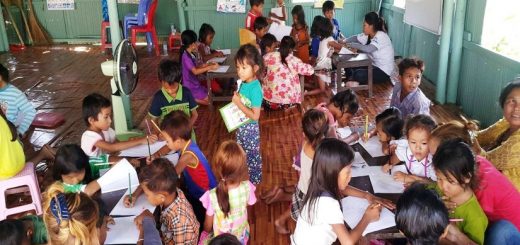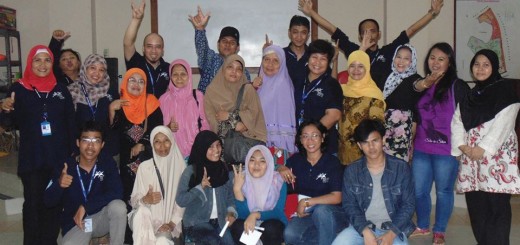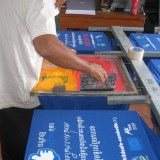It’s a hot, dusty ride to Andong
A story by our AYAD volunteer Allan.
When I ask Sitrin if I can ride with the Wisebird team to the Andong community a wide grin explodes across his face. He grasps at my hand and shouts “Yes! Of course Allan, of course!”
Sitrin talks loudly and laughs even louder. He is confident, intelligent and has gentleness in his manner that makes him irresistibly likable. He commands the Wisebird bus with great authority and at times laughs so much I’m frightened he’ll run us off the road.
Wisebird is an outreach team (a team regularly visiting youth and families on the streets and communities) providing education on topics such as health, sexual health and migration. Riding in today’s team is Sitrin, Nari and Yoth (pronounced Ute). Sitrin specialises in non-formal education for youth aged 16 to 24 years, Nari specialises in non-formal education for children aged 0 to 16 years while Yoth provides basic medical treatment and advice for youth aged 0 to 24 years. Although the Wisebird team are effectively educators they also work in a number of other areas including family reconciliation and migration.
It’s a hot, dusty ride to Andong. This is my second trip with Sitrin and his team.
My head sinks when I realise she is crying. She paces around the small room before turning away, burying her head in a frayed handkerchief. Sitrin looks at her with wide dark eyes while I sit shell shocked on a rotting stool. I plead with Sitrin to apologise on my behalf which he does in a warm soft voice. Karona (not her real name) quickly regains her composure before, to my utter amazement, answering my question “My daughter died when she was 13 from dengue fever. She died and then we were moved here by government”. Her eyes fill with tears once more.
Andong is a community for displaced peoples situated 25km from Phnom Penh. It is a 3.3 hectare plot of land housing 1554 families. The community was moved in 2006 from Phnom Penh when their land was ‘acquired’ for development.
“Officials would be very rough and push us off our land. Sometimes in the night they would burn our houses. Sometimes bulldozers would start in the early morning. Once the houses were destroyed trucks come to collect us and bring here.”
Karona’s neighbour, a man with a broken leg nods in silent agreement. His cast rests elevated beside me upon a plastic container. Breaking the silence he points to a partially completed two story house across the thoroughfare. Chuckling heartedly he mimics his weightless body falling before hitting the dirt below. A warm breeze gathers dirt and blows it about their homes. We sit awhile watching children drag tin cans along dusty paths. Heat exhausted dogs lay in the dirt drinking from manmade drains.
Sitrin explains that he has brought me deep into the community to see firsthand the work and positive impact of Friends-International. Karona explains how she, with assistance from the Friends home based production program, is able to earn money for herself and her son. Home based production is a training initiative that teaches parents production skills to make items from recycled material which Friends purchase and on sell in their Phnom Penh stores. Karona has been able to earn up to 100,000 riel or USD $25 per week (The average Cambodia monthly wage is $50USD per month – Asean Comparative Wages). through the program. With the money earned she has begun settling the accounts for her daughter’s funeral and building materials for her new home.
While many of the other women in the community commute to Phnom Penh to work in beer gardens, laundromats, karaoke bars or construction Karona is able to stay at home and work while providing stability for her son.
“Many girls leave between 4am and 11am depending on job. They return between 5pm and 11pm while some only return on weekend. To make money in Phnom Penh it is a long distance. I am very happy with home production. I have been doing it for 18 months.”
Sitrin and I return to the Wisebird bus parked amongst a small nest of trees. Inside the bus Yoth sits applying alcohol swabs to children’s cuts and sores. Each child receives a soft lolly for bravery and a small bag of vitamins to aid in the healing. Nari sits on a mat in the shade directing a game that looks not too dissimilar to bingo. Surrounded by children eagerly watching, she holds their gaze just for a moment… “Pram!”
A high pitch roar breaks from the young crowd. Everyone breaks into laughter and rolls about on the mat. Sitrin and I join them.
I use it as a chance to forget about Karona’s tears. It’s a hot, dusty ride to back to Phnom Penh.
















